Apple’s smartphone encryption standoff with FBI reaches US Congress
by Agency Staff,
2016-03-01 22:41:13.0
WASHINGTON — The fight betweenApple and the FBI landed squarely in the hands of Congress on Tuesday, as sceptical legislators questioned the FBI’s chief about efforts to unlock encrypted smartphones.
FBI Director James Comey said the bureau was simply asking Apple to remove some security features so that investigators can hack into the iPhone used by one of the shooters in the December massacre in San Bernardino, California.
"Essentially we’re asking Apple to take the vicious guard dog away, let us try and pick the lock," Mr Comey said.
But he also acknowledged that forcing Apple to help unlock the San Bernardino shooter’s iPhone could set a precedent for other investigations.
Legislators took up the issue of smartphone encryption a day after Apple notched a win in New York, where a US magistrate judge denied the government’s bid to force the company to help it gain access to another iPhone, one that belonged to a drug dealer.
Earlier, the FBI won a court order that Apple help it gain entry into the phone used by Syed Rizwan Farook, though the company has challenged the order.
Representative John Conyers of Michigan, the panel’s top Democrat, criticised the FBI for turning to the courts rather than Congress.
"The government’s assertion of power is without limiting principle and likely to have sweeping consequences — whether or not we pretend that the request is limited to just this device, or just this one case," Mr Conyers said of the California case. "Why has the government taken this step and forced this issue?"
Apple says complying with the FBI’s demand would threaten privacy rights of millions of people, and it has argued in US district court in California that the federal government is overstepping its authority.
The FBI is effectively asking the company to "hack" its own devices and create a "back door" that could be exploited by malicious actors, Apple says.
Mr Comey told legislators that "there are no demons in this debate" but good people with different points of view as encryption spreads to everyday technology. "Everyone should understand: if there are warrant-proof spaces in America, what does that mean?" Mr Comey said.
In testimony prepared for the hearing, the FBI chief said that without access to information stored on iPhones and other devices, "we may not be able to identify and stop terrorists".
Congress may be able to influence the debate over encryption at the appeals court level — though it already may be too late for the Brooklyn lawsuit, decided on Monday, and probably will not come in time for the California suit, where the judge will begin considering all arguments at a March 22 hearing.
Apple General Counsel Bruce Sewell and Manhattan District Attorney Cyrus Vance were among the witnesses scheduled to testify before the committee later on Tuesday.
Mr Sewell, in prepared testimony, said complying with the FBI request would undermine privacy and security for consumers.
"How do we deploy ever stronger, more effective encryption without unduly preventing lawful access to communications of criminals and terrorists intent on doing us harm?" Representative Bob Goodlatte, a Virginia Republican who’s chairman of the House Judiciary Committee, said in opening the panel’s hearing.
US Attorney General Loretta Lynch in a speech on Tuesday called on technology companies and the government to find common ground without proposing a specific compromise.
Bloomberg
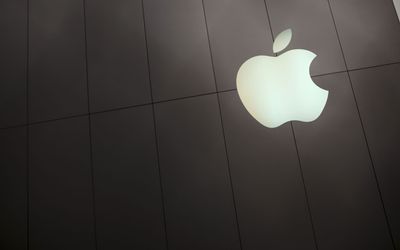
Picture: REUTERS
WASHINGTON — The fight betweenApple and the FBI landed squarely in the hands of Congress on Tuesday, as sceptical legislators questioned the FBI’s chief about efforts to unlock encrypted smartphones.
FBI Director James Comey said the bureau was simply asking Apple to remove some security features so that investigators can hack into the iPhone used by one of the shooters in the December massacre in San Bernardino, California.
"Essentially we’re asking Apple to take the vicious guard dog away, let us try and pick the lock," Mr Comey said.
But he also acknowledged that forcing Apple to help unlock the San Bernardino shooter’s iPhone could set a precedent for other investigations.
Legislators took up the issue of smartphone encryption a day after Apple notched a win in New York, where a US magistrate judge denied the government’s bid to force the company to help it gain access to another iPhone, one that belonged to a drug dealer.
Earlier, the FBI won a court order that Apple help it gain entry into the phone used by Syed Rizwan Farook, though the company has challenged the order.
Representative John Conyers of Michigan, the panel’s top Democrat, criticised the FBI for turning to the courts rather than Congress.
"The government’s assertion of power is without limiting principle and likely to have sweeping consequences — whether or not we pretend that the request is limited to just this device, or just this one case," Mr Conyers said of the California case. "Why has the government taken this step and forced this issue?"
Apple says complying with the FBI’s demand would threaten privacy rights of millions of people, and it has argued in US district court in California that the federal government is overstepping its authority.
The FBI is effectively asking the company to "hack" its own devices and create a "back door" that could be exploited by malicious actors, Apple says.
Mr Comey told legislators that "there are no demons in this debate" but good people with different points of view as encryption spreads to everyday technology. "Everyone should understand: if there are warrant-proof spaces in America, what does that mean?" Mr Comey said.
In testimony prepared for the hearing, the FBI chief said that without access to information stored on iPhones and other devices, "we may not be able to identify and stop terrorists".
Congress may be able to influence the debate over encryption at the appeals court level — though it already may be too late for the Brooklyn lawsuit, decided on Monday, and probably will not come in time for the California suit, where the judge will begin considering all arguments at a March 22 hearing.
Apple General Counsel Bruce Sewell and Manhattan District Attorney Cyrus Vance were among the witnesses scheduled to testify before the committee later on Tuesday.
Mr Sewell, in prepared testimony, said complying with the FBI request would undermine privacy and security for consumers.
"How do we deploy ever stronger, more effective encryption without unduly preventing lawful access to communications of criminals and terrorists intent on doing us harm?" Representative Bob Goodlatte, a Virginia Republican who’s chairman of the House Judiciary Committee, said in opening the panel’s hearing.
US Attorney General Loretta Lynch in a speech on Tuesday called on technology companies and the government to find common ground without proposing a specific compromise.
Bloomberg


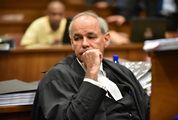
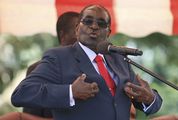




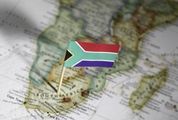

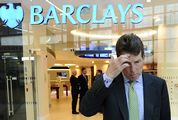










Change: 0.80%
Change: 0.61%
Change: -0.25%
Change: 0.13%
Change: 4.02%
Data supplied by Profile Data
Change: 1.13%
Change: 0.37%
Change: 0.80%
Change: 0.00%
Change: 0.33%
Data supplied by Profile Data
Change: -2.03%
Change: -1.51%
Change: -1.45%
Change: -2.26%
Change: -0.91%
Data supplied by Profile Data
Change: 0.07%
Change: 3.71%
Change: 2.65%
Change: 3.36%
Change: 4.99%
Data supplied by Profile Data